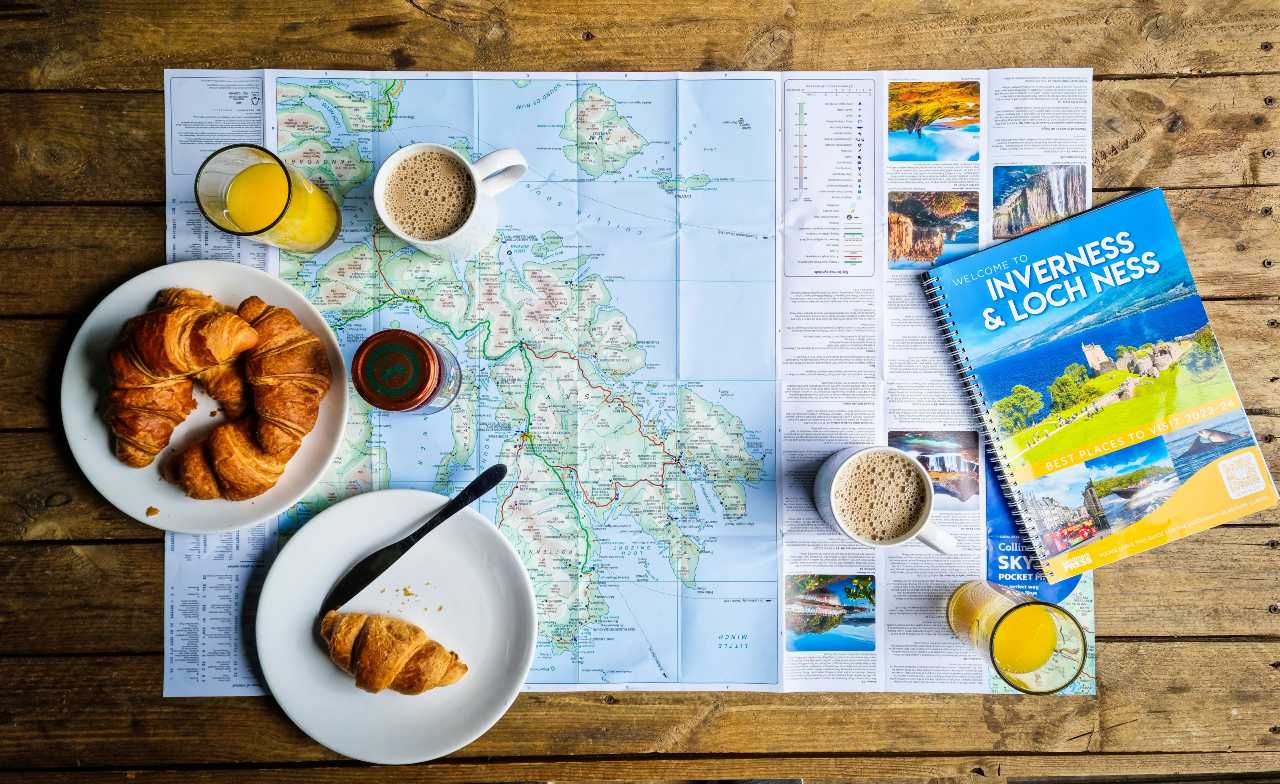Contents
- 1.
- 2.
- 3.
You've heard it from your favorite influencer, from your travel credit card, and maybe even from your best friend: It's possible to earn a free flight by accumulating miles or points. But how many points do you actually need, and how long will it take you to earn that?
The short answer: If you play it smart, you can snag a one-way domestic flight in economy for as little as 6,000 points and a one-way international flight in economy for as little as 15,000 points. Bump up to business class for around 15,000 points for a short-haul domestic flight and around 35,000-50,000 points for an international flight. Now, that said, not all airline miles are created equally. Loyalty programs all price their award flights differently, so 150,000 miles in one program may actually be worth less than 100,000 miles in another.
Depending on the miles you're using to reserve, the amount of rewards you'll need for a free flight can vary by thousands and thousands (and thousands!) of points. Let’s take a look at how award flights are calculated — and how to get the most out of your points and miles.
What types of flight awards are available?
Broadly speaking, there are two types of flight awards you can book with your points and miles: Saver and standard.
“Saver” awards
These seats cost the fewest miles. Because of this, they’re often the first to sell.
Standard awards
These are priced higher, but availability is much better — you can often book the last seat on the plane with a standard award. But you should only break the glass for these awards in case of emergency.
For example, take a look at the economy options below for a United Airlines flight to Paris. One is labeled “Saver Award,” while the other is not. And the price reflects it — the standard award costs more than double!
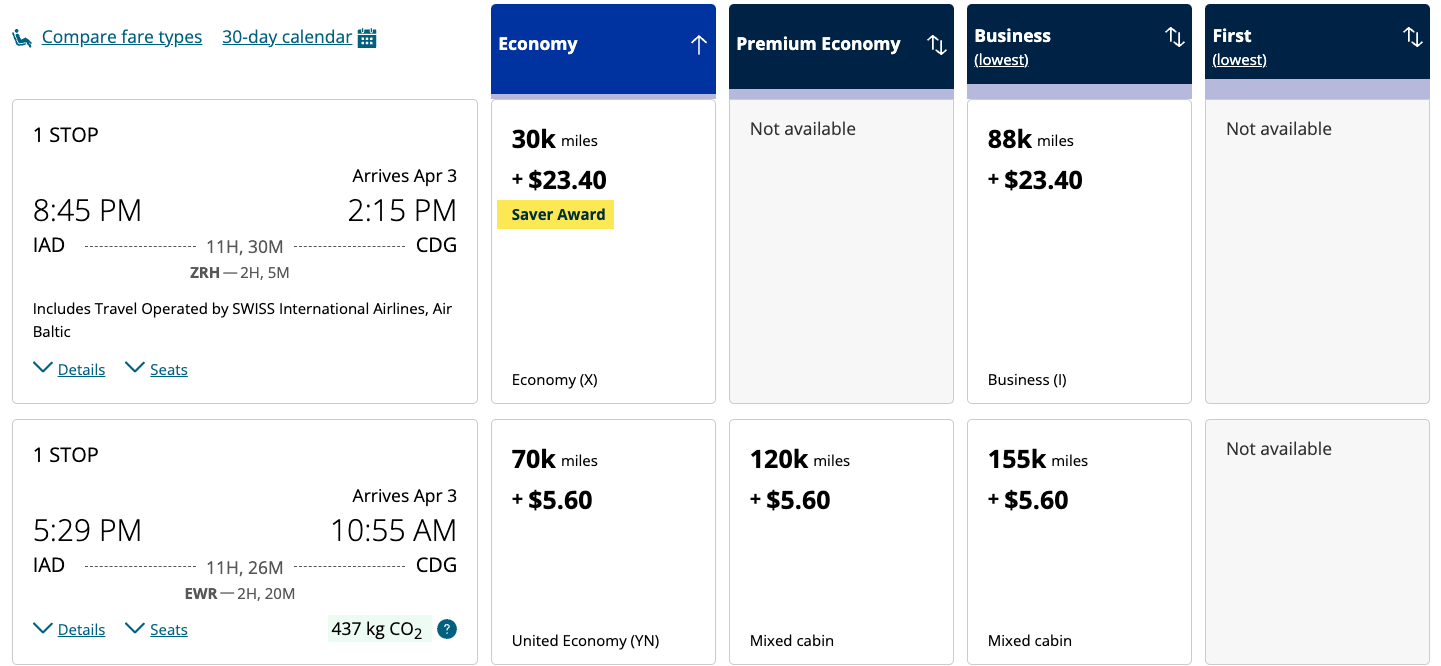
Not all airlines stamp a “Saver” badge on their awards — but you’ll know which is which based on the price.
You can book all types of seats with your frequent flyer miles. Many airlines offer the full gamut, from bare-bones but cheap basic economy to fancy seats that turn into a bed. Check out this Delta flight between New York (JFK) and Dublin (DUB). You can choose from Basic Economy, Main Cabin, Comfort+, Premium Select, and Delta One (aka business class):

How are airline awards calculated?
An airline determines its award prices in one of four ways:
The regions in which you're flying
The distance you're flying
A magic formula that seems utterly arbitrary
Revenue-based awards
On rare occasions, an airline will use more than one of these approaches. Here’s a quick explanation of all three.
Zone-based award charts
The award cost of tickets governed by a zone-based award chart is generally based on two details:
Your origin airport
Your destination airport
As an example, take a look at the Singapore Airlines award chart. This shows the Saver prices you’ll pay for a round-trip flight on its partner airlines, like United Airlines, SWISS, and Turkish Airlines.
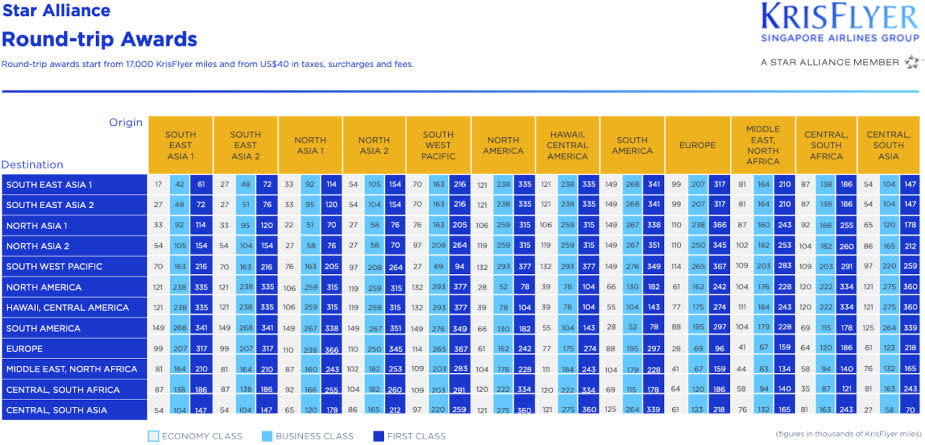
If you’d like to fly from San Francisco (SFO) to Vienna (VIE), your origin is “North America” and your destination is “Europe.” A quick glance shows that you’ll pay 30,500 miles one way (or 61,000 miles round-trip) in Economy.
Zone-based awards have an astounding upshot, because the award prices have nothing whatsoever to do with the cash price of the ticket. Whether that seat to Vienna costs $500 or $5,000, a Saver award will still cost just 30,500 miles each way.
Distance-based awards
As you might've guessed, distance-based awards are priced according to the distance of your journey. Distance-based award prices aren’t quite as easy to determine as zone-based; you’ll have to check your specific route to see how many miles you need for a free flight. Great Circle Mapper is a great tool to use to estimate your flight distance.
Let’s look at the distance-based award chart for Alaska Airlines. It charges between 7,500 miles and 55,000 miles one-way for Saver Economy flights between the U.S. and Europe, the Middle East, and Africa on its airline partners like American Airlines.
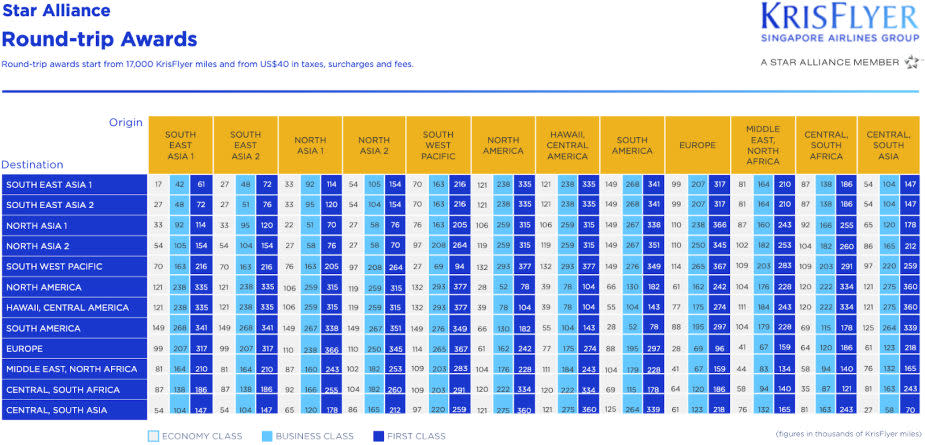
For example: The distance between Washington, DC (IAD), and Casablanca, Morocco (CMN), is 3,830 miles. According to the above award chart, the flight should cost 27,500 miles. That’s an absolute steal to reach Africa from the U.S.
Of course, there's a catch: You might have to pay more if you’ve got connections. Remember, the price you pay depends on how far you fly — not how far two airports are from each other.
When searching for the same flight on Alaska Airlines, you’ll notice that the top price (a nonstop flight) does cost 27,500 miles. But the price below it costs double. This is because the second itinerary routes through Doha, Qatar (DOH). That adds more than 6,500 miles to your trip and pushes you over 10,000 miles traveled.
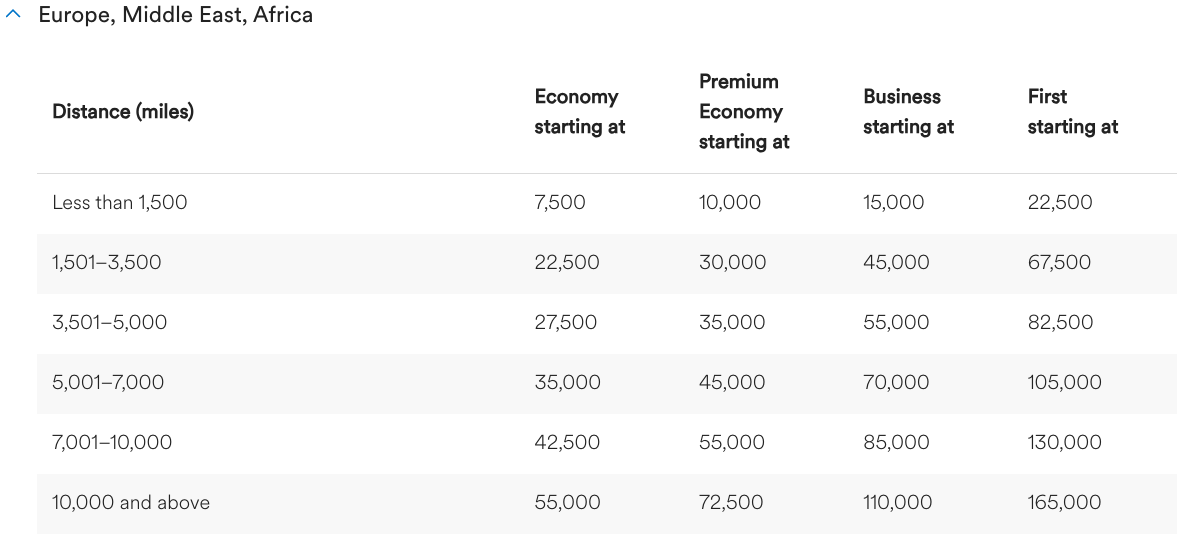
Other distance-based airlines may have additional rules that affect the total price. For example, British Airways charges based on the distance of each flight segment instead of the overall distance of a trip. Trips with more stopovers typically result in a higher award price. It also publishes a calendar showing “peak” and “off-peak” travel dates with unique prices for flights on British Airways.
Dynamic award pricing
The most head-scratching pricing model is “dynamic” pricing — a top-secret proprietary algorithm that might as well consist of throwing darts at the wall to decide how much to charge. With dynamic pricing, you’ll have to search your specific route and date; in other words, the exact flight you want.
Here’s a look at the award-flight pricing for American Airlines economy tickets between Cleveland (CLE) and San Juan, Puerto Rico (SJU). Prices are 8,000 miles one day and 22,000 miles the next.
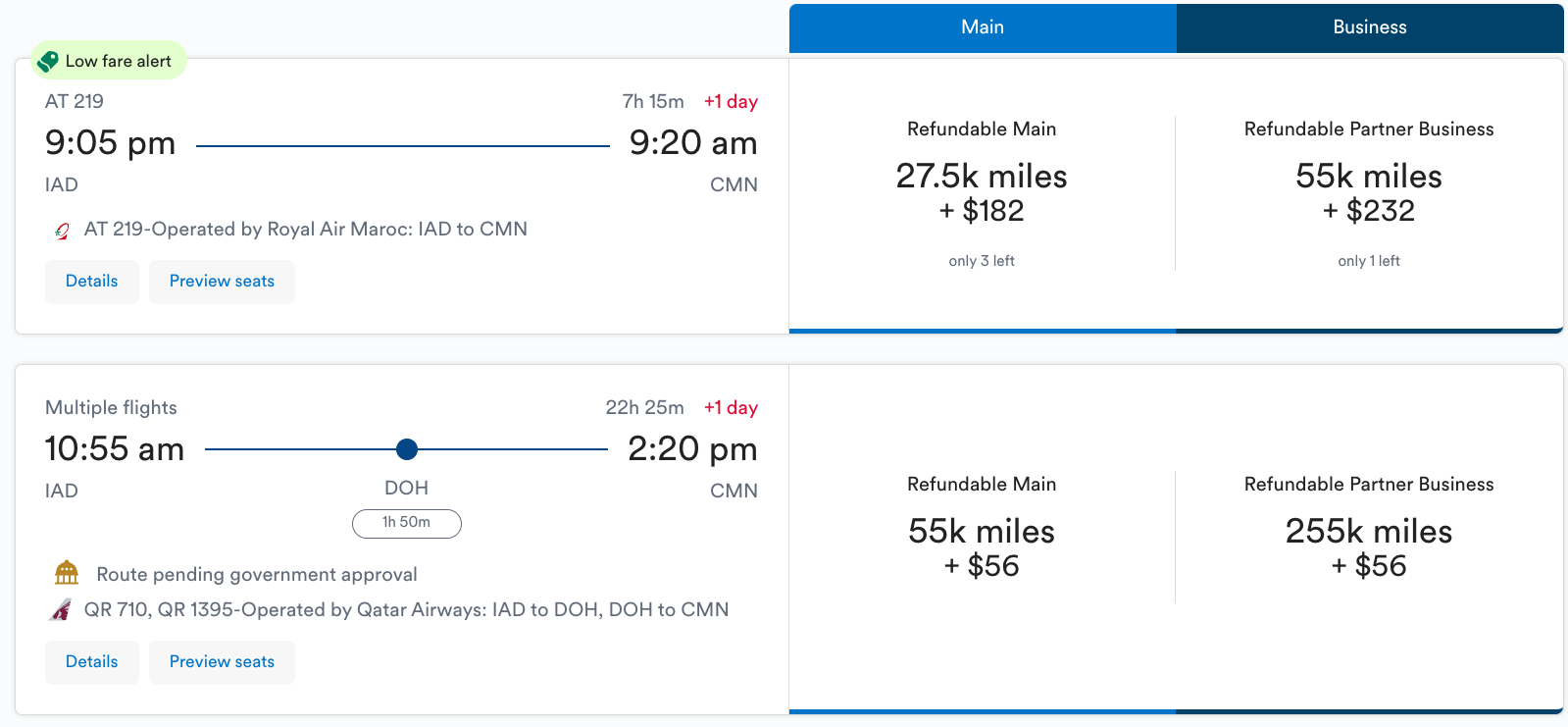
If you’re flexible with your travel dates, dynamic pricing can be the best thing that ever happened to you. But if your travel dates are set in stone, it probably won't be a good option.
Revenue-based awards
Revenue-based awards tie the points price of a seat to its cash price. Southwest Airlines and JetBlue use this method to give their points more of a fixed value. When the cash price of a ticket goes up, so does the award price, and vice versa.
You can find some super-low prices on airlines like these during flash sales — sometimes under 3,000 points for a short hop.
How do I increase the value of my points or miles for redemption?
The return you get for your points and miles depends entirely on how you use them. There are some simple (though not necessarily easy) principles to follow to get more mileage from your…well, mileage.
Keep your origin and destinations flexible
Flight rewards can be unpredictable due to limited availability and dynamic pricing, but keeping an open mind about the airports you use can be a good workaround.
For example, if you can’t find any cheap award flights to Milan (MXP) from your home airport of Austin (AUS), you could instead search from San Antonio (SAT), Houston (IAH), or Dallas (DFW). It may require a longer drive than usual, but the prospect of saving tens of thousands of points might be worth the time behind the wheel.
You can also search for flights to cities relatively close to Milan, such as Geneva (GVA), Zurich (ZRH), and Venice (VCE). A large number of European cities are connected via low-cost airlines, so it’s not difficult to find a one-way Economy flight to Milan from cities like Madrid and Berlin for less than $25 (though you’ll have to pay for stuff like bags and seat assignments if you want them).
Open the right airline credit card
Just holding certain airline credit cards can make your miles and points more valuable. For example, the JetBlue Plus Card delivers a 10% rebate every time you book a JetBlue-operated award flight, while the Delta SkyMiles Platinum American Express Card comes with a benefit called TakeOff 15, which gives you a 15% discount on Delta-operated flights.

What type of fares offer the best value per point?
Again, you should do everything in your power to keep from redeeming airline miles for "standard" awards. If “Saver” fares aren't available, you’re almost always better off paying cash for the flight and saving your miles for later.
Apart from that, the fares that offer the best value per point are almost always business- and first-class awards. It’s certainly possible to stumble upon a great deal in Economy, but loosely speaking, you shouldn’t expect to get more than 1.5 cents in value for a plain ol’ main cabin seat.
Premium seats, particularly for flights across the ocean, often cost thousands of dollars — without a massive up-charge in miles. For example, a lie-flat business-class seat on Qatar Airways from New York (JFK) to the Maldives (MLE) costs 70,000 American Airlines miles and $42.80 in taxes and fees.
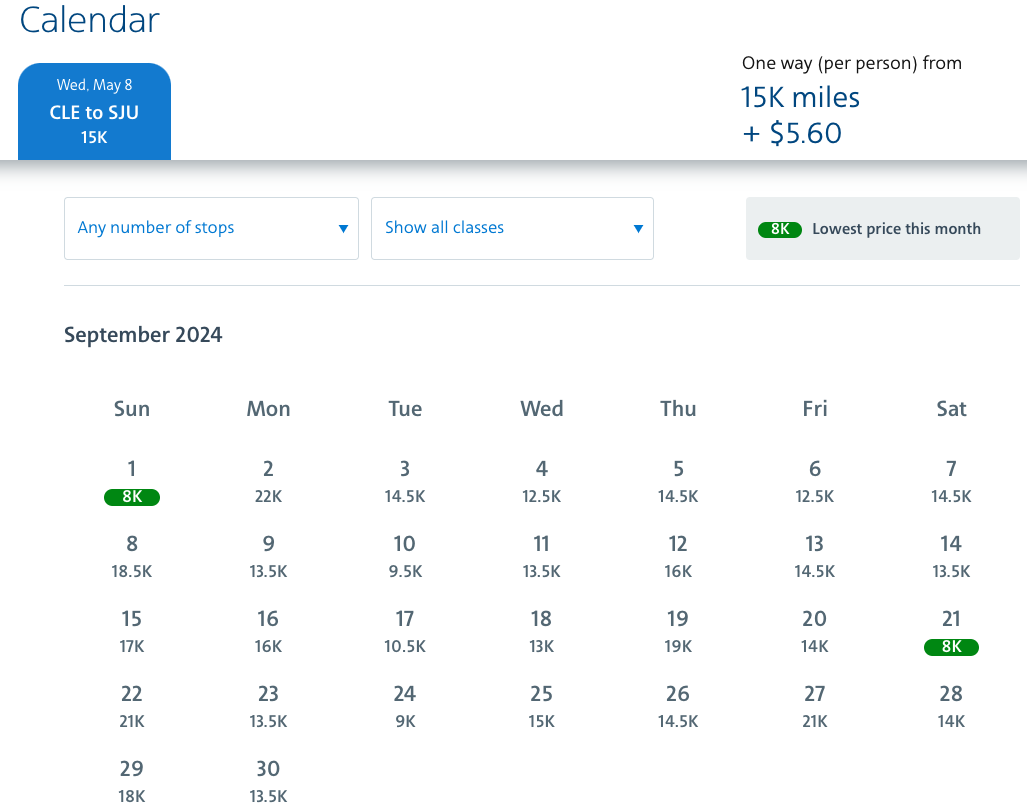
You’d pay more than $2,500 to buy the same seat in cash — giving you a value of more than 3.5 cents each.

But consider this: Unless you’re regularly springing for business- or first-class seats, you’re not really saving thousands of dollars with a high-status award fare, even though you’re getting thousands of dollars in free travel. If you usually ride in the main cabin, miles more closely represent “savings” when you’re booking an economy flight.
How many points are required for a free flight on the major airlines?
The number of miles you’ll need for a free flight depends not only on your route and dates, but also the frequent flyer programs you use to book. Let’s take a look at the average one-way prices for the most popular airline loyalty programs, along with the alliance they belong to.
Keep in mind that any airlines in the same alliance can be booked through each other’s loyalty program. You’ll see from the chart below that the exact same seat on a plane can cost tens of thousands of points more (or less) depending on the type of miles (and the airline partner) you’re using.
Airline | Economy/first-class Saver domestic flights (transcontinental) | Economy/business-class Saver international flights (New York to London) |
American Airlines (Oneworld) | 12,000/25,000 | 27,000/57,500 |
Delta (SkyTeam) | 16,000/88,500 | 36,000/155,000 |
Alaska Airlines (Oneworld) | 17,500/35,000 | 27,500/55,000 |
United Airlines (Star Alliance) | 15,000/30,000 | 34,000/80,000 |
Southwest | 13,000/25,000 | N/A |
Air Canada (Star Alliance) | 12,500/25,000 | 35,000/60,000 |
British Airways (Oneworld) | 16,000/42,000 | 30,000/90,000 |
Singapore Airlines (Star Alliance) | 14,000/26,000 | 30,500/81,000 |
We’ve arrived at these numbers after multiple searches. Our prices are rough estimates and may not be exactly what you’ll find for your travel dates, but they should help you to get an idea of what you can expect to pay.

How do I use credit card points to book free flights?
When we talk about credit card rewards, we’re referring to transferable rewards currencies, such as:
American Express Membership Rewards points
Bilt Rewards
Capital One miles
Chase Ultimate Rewards points
Citi ThankYou points
Wells Fargo Rewards points
There are two ways to use credit card miles to book free flights.
The best way: Convert points into airline miles
Flexible points can be transferred to a variety of partner airline loyalty programs — just choose the participating airline program you want to book through, choose the number of points you want to transfer, and you’ll find the miles in your airline account, often immediately. How do you know which partner to transfer your points to? First, do a flight award search with a tool like point.me that checks hundreds of airlines and dozens of loyalty programs, then select the best option for you, transfer your points, and book directly with the airline.
The second-best way: Book travel through the credit card’s travel portal
When a credit card issuer has its own points currency, it usually has an online travel booking service as well. You’ll often receive at least a value of 1 cent per point when booking airfare this way, though some offer a higher value depending on which credit card you’ve got.
This is a simple strategy to redeem your points, but it’s not the smartest. That’s because the potential value is much greater when transferring points to airlines for an award flight. You can get 2+ cents per point that way.
Will I pay taxes or fees on flights booked with points?
All award tickets are subject to taxes and fees. Fees can be as low as $5.60 each way, but they can also cost several hundred dollars depending on the loyalty program you book through and the airline you’re flying.
British Airways, for example, charges $350 for a business class flight on its own planes between New York and London. Even though the cash cost of this ticket is thousands of dollars, a $350 bill for a “free” flight still stings.
Some programs, like Air Canada, allow you to pay these fees with miles and points.

But whether it’s with cash or rewards, you’ll almost always pay taxes and fees for your award ticket.
Frequently asked questions about how many points earn a free flight
How many points do I need for a free domestic flight?
The number of points you need for a domestic flight varies depending on your route. You can find short hops for as little as 4,000 miles, whereas transcontinental flights may cost 15,000 miles or more.
How many points do I need for a free international flight?
Again, the number of points you'll need hinges on your origin and destination, when you book, and the type of points you're using. Be prepared to spend at least 25,000 miles one way for a flight across the Atlantic. If you find a cheaper deal, consider it a bonus.
Which frequent flyer program has the best redemption rates?
Each frequent flyer program has different merits. However, British Airways' loyalty program is a well-rounded contender; it's good for short hops, and it partners with airlines like Iberia and Qatar Airways, which are great for reaching Europe and parts of Asia.
Which credit cards are best for frequent flyer points?
Paradoxically, airline credit cards aren't usually best for earning frequent flyer points. They tend to have a low return rate on both airfare and everyday spending categories. However, credit cards that earn transferable points that can be converted into airline miles, such as the Platinum Card from American Express, can earn points at a higher rate.
Is it better to book economy or business/first class with points?
In almost every scenario, you'll get more value by booking Saver business or first-class flights with points than plain ol' economy. That said, it's not necessarily better to book a fancy seat with points; do what makes you happy.
What are some ways to optimize my points?
To truly maximize your points, you'll need to learn the ins and outs of each airline loyalty program to understand which award charts and dynamic prices best complement your travel style. That's a lot of work — which is why point.me has automated most of this for you.
Will I earn miles on flights booked with points?
You will not earn miles on flights booked with points.
Let point.me handle the details
Understanding the different airline rules and tricks allows you to endlessly strategize the best ways to maximize the value of your airline miles and points, and to be sure, the sense of accomplishment you’ll feel after successfully hacking an award chart is very gratifying.
However! If you’re not interested in devoting your time to learning the ins and outs, point.me can help you to accomplish the same result in just a few minutes. Enter your origin, destination, and travel dates, and the point.me search engine will instantly find the best award flights for your trip — no professional travel-hacking experience required. Or just share your travel details with a point.me concierge and we'll find and book the perfect flight for you.

You’ll then see a long list of flights you can filter by price, duration, and — our favorite — point.me picks, which shows you the best balance between price and speed.

With your ideal search results at the top, point.me will show you which credit card miles and points you can use to book it.
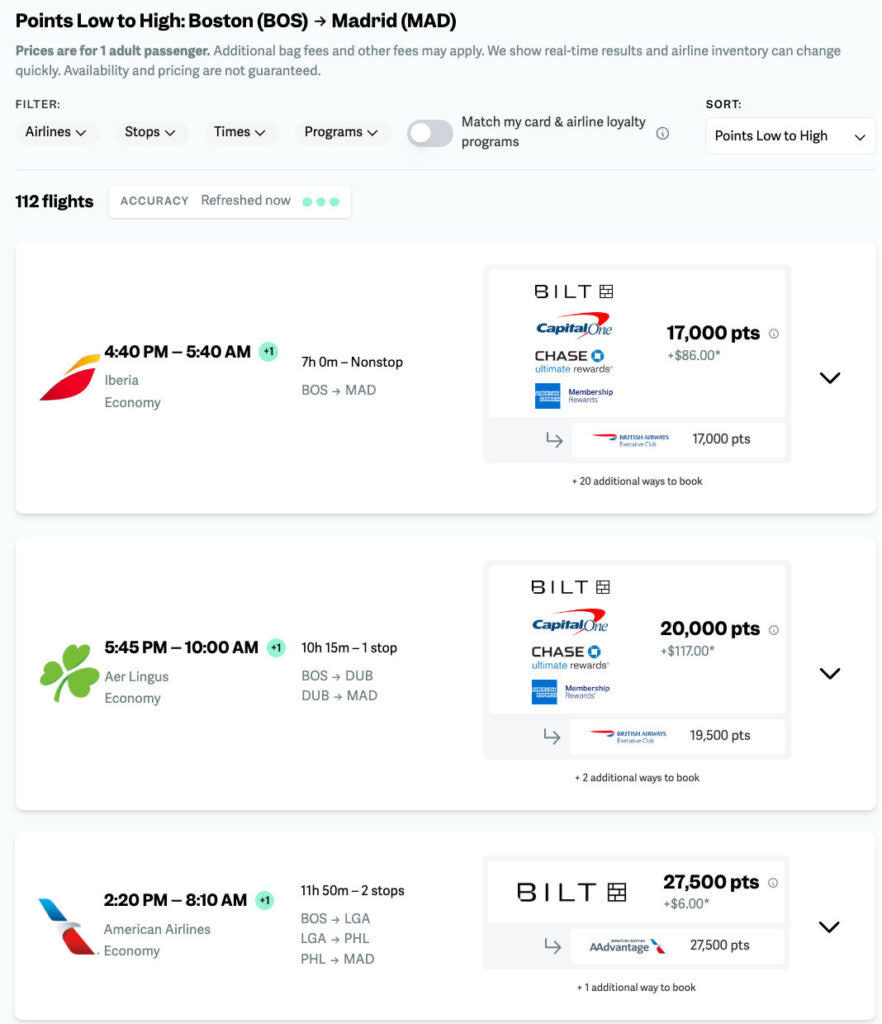
Click on the flight that you want, and you’ll be guided to a beginner-friendly explainer that shows you, step-by-step, how to finish booking. We’ll detail:
How to open an account with a specific airline loyalty program
How to transfer points to that airline loyalty program
How to complete the booking on the airline’s website
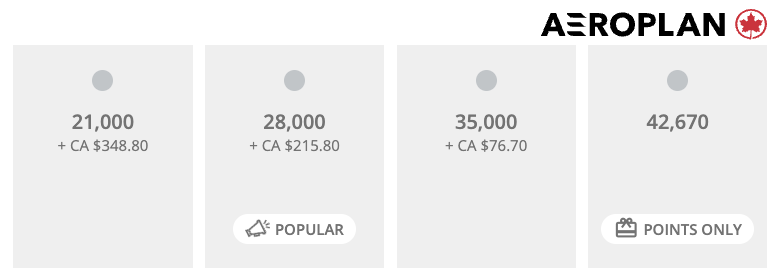
Our method will help you book award travel like the pros, but if you’d prefer an actual pro, you can book an appointment with one of our experts to handle the details for you.



